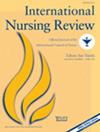Exploring Spiritual Care Competence Among Nursing Assistants in Chinese Nursing Homes: A Cross-Sectional Study Based on the Knowledge–Attitude–Practice Theory
Abstract
Aim
This study, based on the knowledge–attitude–practice theory, investigates the spiritual care competence of Chinese nursing assistants and its influencing factors to inform targeted training programs.
Background
With the aging population, China's traditional family-based model of elderly care has shifted to the current trend of greater reliance on nursing homes. Spiritual care competence among nursing assistants is crucial to delivering holistic care to older people. Assessing and strengthening this competence helps meet older people's needs for high-quality elderly care services and improves the service quality of nursing homes.
Methods
This is a descriptive cross-sectional study. Nursing assistants (n = 578) from multiple nursing homes in Chengdu, China, were recruited by convenience sampling between December 2023 and May 2024 by predefined inclusion and exclusion criteria. The study used an online questionnaire to assess the nursing assistants’ sociodemographic characteristics, spiritual care perception, spiritual care attitude, and spiritual care competence.
Results
This study found that the mean spiritual care competence score among nursing assistants was (2.63 ± 1.00), indicating a moderate level. According to stepwise multiple linear regression analysis, years of work, understanding of spiritual care, spiritual care perception, and spiritual care attitude were significant predictive factors affecting the spiritual care competence of nursing assistants, explaining 45.1% of the total variance.
Conclusion
To improve nursing assistants’ spiritual care competence in Chinese nursing homes, it is essential to enhance their perception and attitude toward spiritual care through targeted training strategies.
Implications for nursing policy
Managers should improve relevant policies, address nursing assistants’ training needs in spiritual care, and develop effective training strategies to enhance their spiritual care competence, thereby continuously improving the quality of services in nursing homes.


 求助内容:
求助内容: 应助结果提醒方式:
应助结果提醒方式:


